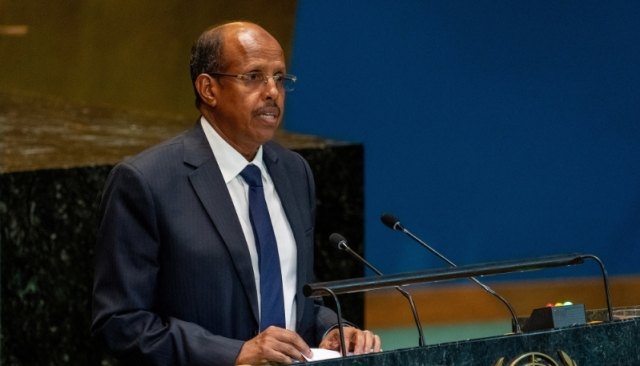In a bid to create a sustainable ecosystem fostering the Agenda 2063 of “Africa We Want,” the African Union Commission (AUC), in collaboration with the African Capacity Building Foundation (ACBF) and AUDA-NEPAD, is calling for strong consortia proposals under its initiative, the Africa Think Tank Platform (ATTP).
The transformative initiative, generously funded with $50 million from the World Bank, is expected to elevate African think tanks to become the architects of “cross-border development policy,” according to a press release signed by Fatou Diouf, Head of Communications and Influencing, ACBF.
The think tanks are expected to apply as 3–5-member consortia with strong proposals to pursue policy-relevant research across the six thematic areas of the African Union.
Successful applicants will receive a $10 million multi-year grant for two and a half years to support programs aligned with the aspirations of Agenda 2063 and the regional integration of priorities.
Speaking at the grand launch of ATTP on Thursday, Samer Al-Samarrai, Lead Economist at the World Bank, said Africa holds significant potential, yet “faces persistent challenges.”
According to Al-Samarrai, this makes it necessary for policies to be “evidence-based, regionally coordinated, and grounded in the continent’s realities.”
African think tanks are central to this effort, she added. “They generate homegrown, evidence-based analysis that reflects local contexts and priorities, and provide actionable recommendations that are practical and relevant.”
Africa, as a continent, experiences a significant research deficit. According to the World Health Organization (WHO) data for 2024, the continent contributes just under one percent to global research.
This gap in research output, often attributed to inexperienced scholars, poor infrastructure, and low funding, has indirectly contributed to many of Africa’s challenges, making them a prevalent plague.
There is a need to engage African think tanks in conducting credible research relevant to policy change and the continent’s growth, says Selma Malika Haddadi, Deputy Chairperson of the AUC.
“ATTP will support,” Chairperson Haddadi continues, “by enabling high-quality policy research that is responsive to continental priorities and attuned to national contexts.”
ATTP is expected to contribute to the consolidation of an integrated knowledge ecosystem that enhances the capacity of member states, AU organs, and regional economic communities to design, monitor, and evaluate transformative interventions.
In her closing remarks, Ms. Faten Aggad, Deputy Chief of Staff in the Cabinet of the Deputy Chairperson, said, “ATTP is not simply a project, it is a structural response to a systemic need to elevate African-generated and African-owned evidence as a cornerstone of policymaking.”
Applications to ATTP are now open, with the proposal submission window closing on 24 September 2025. Award notifications are scheduled for 14 November 2025, while disbursements are expected on 19 December 2025.







